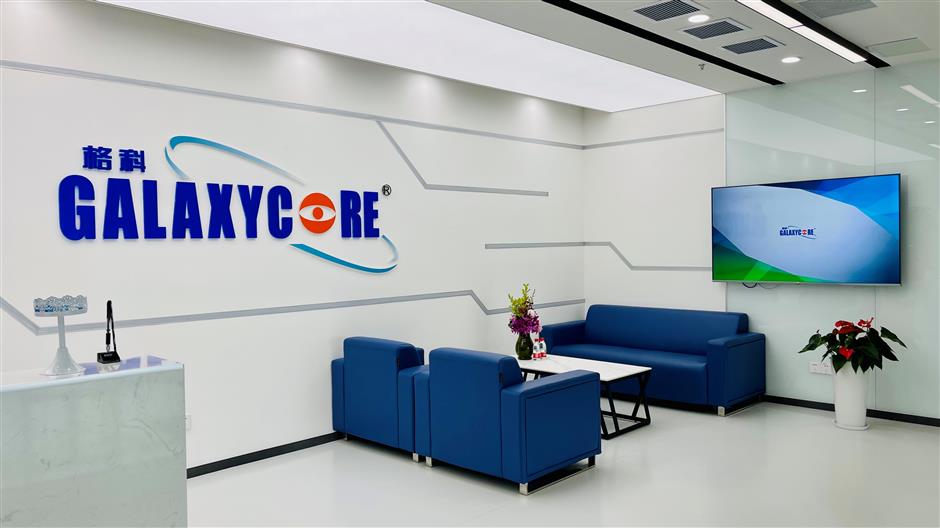Lingang Special Area a paradise for foreign investment
After three years of operation, the Lingang Special Area of China (Shanghai) Pilot Free Trade Zone along Shanghai's southeastern tip has been deemed an unparalleled paradise for foreign investment.
The new zone, which covers an area of 119.5 square kilometers, aims to take a series of broader measures to facilitate free trade, investment, finance, and talent, as well as to improve the business climate for foreign investors in China.
According to the area's 14th Five-Year Plan (2021-2025), it aims to establish a frontier of industrial clusters by attracting more innovative and high-tech enterprises in areas such as integrated circuits (IC), high-end equipment, and biomedicine.
Cytiva, a global leader in life sciences, said it has benefitted from Lingang's quick response and streamlined government services for the past three years.
When Cytiva applied for a business license for continuous operation as a spin-off from GE Healthcare three years ago, the company was surprised by the efficiency of the local government, as all procedures were completed within 24 hours.
According to the firm, Lingang Special Area is also committed to creating a very supportive business environment.
For example, in 2020, the zone launched a series of supportive policies for biopharma companies, offering up to 500 million yuan (US$75.1 million) for significant projects.
Cytiva also expressed satisfaction with the growing collaboration between the government and the private sector in the Lingang New Area.
The number of officials with expertise in biomedical innovation is growing, which gives the industry more hope for the future.
"I believe many companies, including us, are committed to investing more in research and development, talent development, and local manufacturing in China," Yu Lihua, general manager at Cytiva China, told Shanghai Daily.
Asked about the firm's relationship with the local authorities, Cytiva unhesitatingly stated that it was "a win-win situation."
A recent case is that the biofirm received strong support from the local government during the Shanghai lockdown and was one of the first companies to resume work and shipping.
In addition, Shanghai Customs in Lingang assisted it in coordinating with the airport and other authorities, as well as resolving issues such as the import of growth medium during the clearance process.
Cytiva stated that it is committed to expanding its investment and business operations in China, where the heathcare market is projected to grow to 16 trillion yuan by 2030.
The company intends to expand its Fast Trak center in Shanghai, which will house its largest biotech training center in Asia, with the capacity to train 2,000 people per year.
Meanwhile, it will continue to provide R&D services to accelerate bioprocessing, cell and gene therapy development and manufacturing, as well as validation services for industry single-use technologies.

Global life sciences firm Cytiva is committed to expanding its investment and business operations in China.
Lingang Special Area also serves as a development platform for integrated circuit companies such as GalaxyCore Semiconductor (Shanghai) Limited, a wholly-owned subsidiary of GalaxyCore Inc that designs, develops, and sells high-performance CMOS image sensors.
The company stated that it has received considerable assistance and favorable policies from the local government for its 12-inch imaging solution R&D project.
According to Guo Xiuyun, GalaxyCore Inc's chief financial officer and board secretary, the move is part of the chipmaker's strategic transition from a fabless business model to a fab-lite model.
A fabless company does not own a semiconductor foundry; instead, it outsources manufacturing processes such as wafer fabrication, packaging, and testing.
In contrast, the fab-lite model, which focuses on cost optimization, provides low-cost solutions for semiconductor industry players.
At the moment, production line equipment has been largely relocated to the new factory, and commissioning of the equipment will be completed soon, according to Guo, who added that the site will begin risk production in the third quarter of this year.
Aside from chip fabrication, Lingang has seen a thriving upstream and downstream industry in recent years.
According to a recent action plan outlined by the local administration, the area's IC industry surpassed 10 billion yuan last year and is expected to reach 100 billion yuan by 2025.

GalaxyCore Semiconductor (Shanghai) Limited, a wholly-owned subsidiary of GalaxyCore Inc, has received considerable assistance and favorable policies from the local government for its 12-inch imaging solution R&D project.
Sean Xie, president of Lenze Asia and general manager of Lenze China, said Lingang has been performing magic tricks for the past decade, and Lenze was fascinated by the wonderland.
Founded in 1947, the German company specializes in industrial automation and intelligent manufacturing.
When the group decided to build a factory in China in 2006, they chose Lingang over several other cities, despite the fact that the area was "barren" at the time, Xie told Shanghai Daily.
The company's top management placed a large bet on the good industrial base in Shanghai and neighboring Yangtze River Delta cities.
And they were correct.
China has emerged as a critical strategic market for the entire group.
Lenze Drive Systems (Shanghai) Co, a wholly-owned subsidiary of Lenze Group, has seen its revenue after taxes grow at a rate of 20 percent per year over the last three years, from 500 million yuan to 850 million yuan, and its profit quadrupled.
Now, on this foreign investment haven, the German manufacturing behemoth hopes to transform China into a new growth engine for the group's Strategy 2025 master plan.
Xie said that their company emerged stronger from the pandemic thanks to timely and efficient guidance and assistance from the administration committee of Lingang.
"We are considering expanding the third phase of our factory here in Lingang, and we anticipate more relaxed and tailored pandemic prevention policies to increase the cross-border movement of people," he added.

Lenze Drive Systems (Shanghai) Co is considering expanding the third phase of its factory in Lingang.















